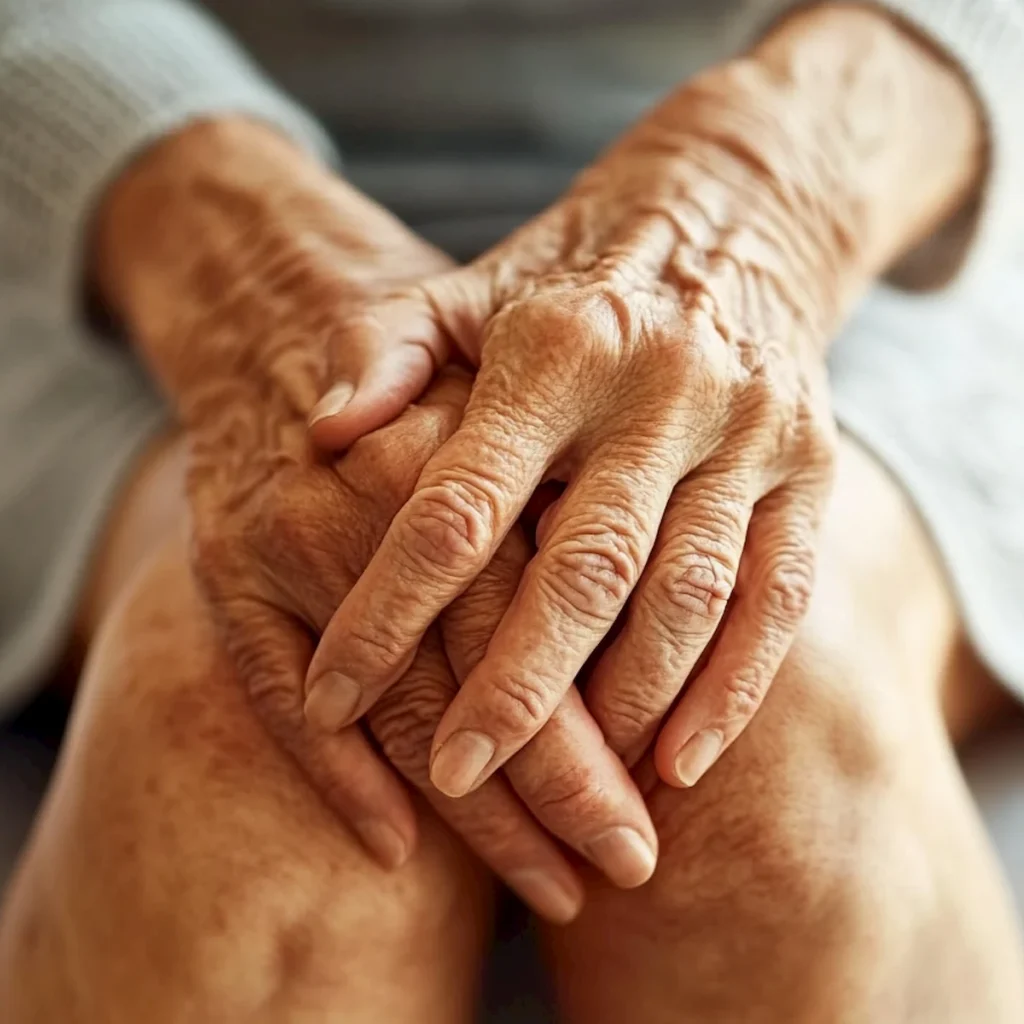Crepey skin develops due to intrinsic (natural aging) and extrinsic (environmental) factors. Contact us today to schedule an appointment.
Crepey skin is a common but often misunderstood skin concern that affects many people as they age. Characterized by thin, fragile, and finely wrinkled skin that resembles crepe paper, it commonly appears on the arms, legs, neck, and hands. While aging plays a significant role, other factors—such as sun damage, dehydration, and collagen loss—contribute to the development of crepey skin.
Book a consultation today at St. Louis Dermatology & Cosmetic Surgery to discover the best crepey skin treatments!

What Causes Crepey Skin?
Crepey skin develops due to intrinsic (natural aging) and extrinsic (environmental) factors. Understanding the root causes can help in both prevention and treatment.
- Collagen & Elastin Loss
- Collagen and elastin are essential proteins that keep skin firm, smooth, and resilient. As we age, our body produces less collagen—about 1% less per year after age 20 (Source: American Academy of Dermatology, AAD). This leads to thinner skin with reduced elasticity, making it more prone to fine lines and sagging.
- Sun Damage (UV Radiation)
- Excessive ultraviolet (UV) exposure is the first environmental cause of premature skin aging. UV rays break down collagen and elastin at an accelerated rate, leading to early signs of aging, including crepey skin (Source: Skin Cancer Foundation).
- Dehydration & Dry Skin
- When the skin lacks moisture, it becomes fragile, dull, and more prone to fine lines. Hydrated skin appears plumper and healthier, while dehydrated skin shows visible signs of aging more quickly.
- Weight Fluctuations
- Rapid weight loss or frequent fluctuations can lead to loose, sagging skin. This is because fat loss occurs faster than the skin can adjust, leaving behind stretched, fragile skin that appears crepey.
- Hormonal Changes & Menopause
- Estrogen plays a key role in skin hydration and collagen production. During menopause, estrogen levels drop, leading to thinner, drier, and less elastic skin (Source: Journal of Dermatological Science).
- Poor Diet & Nutrient Deficiency
- A diet low in protein, vitamin C, and omega-3 fatty acids can accelerate skin aging. These nutrients are essential for collagen synthesis and overall skin health.
Habits That Help Prevent Crepey Skin
While some degree of skin aging is inevitable, adopting healthy habits early can significantly slow the development of crepey skin.
Use Sunscreen Daily
Applying a broad-spectrum SPF 30 or higher sunscreen daily can prevent UV-induced collagen breakdown. Look for sunscreens with zinc oxide, titanium dioxide, or antioxidants for protection.
Stay Hydrated
Drinking at least eight glasses of water daily and using hydrating skincare products can help maintain skin moisture. Hyaluronic acid, glycerin, and ceramides are excellent hydrating ingredients to look for in skincare.
Eat a Collagen-Boosting Diet
Foods rich in vitamin C (citrus fruits, bell peppers), protein (lean meats, fish), and healthy fats (avocados, nuts) support collagen production and skin elasticity. Collagen supplements may also help improve skin hydration and firmness (Source: Journal of Drugs in Dermatology).
Use Retinoids & Peptides
Topical retinoids (such as retinol or tretinoin) stimulate collagen production and help thicken the skin over time. Peptides are another great ingredient that encourages collagen and elastin synthesis.
Strength Training & Exercise
Regular strength training exercises can help improve muscle tone and provide underlying support for the skin, reducing the appearance of sagging.
Best Treatments for Crepey Skin
If crepey skin has already developed, professional treatments can help tighten, smooth, and rejuvenate the skin.
Laser Resurfacing (Ablative & Non-Ablative Lasers)
Laser treatments stimulate collagen production and improve skin texture. CO2 laser resurfacing offers dramatic improvements, while Fraxel (a non-ablative laser) provides gradual but effective results with less downtime.
Radiofrequency Microneedling (RF Microneedling)
RF Microneedling combines tiny needles with radiofrequency energy to trigger collagen growth. It is highly effective for treating crepey skin on the face, neck, and body (Source: Journal of Clinical and Aesthetic Dermatology).

Chemical Peels
Medium-to-deep chemical peels (such as TCA or glycolic acid peels) help remove damaged outer layers of skin while stimulating collagen renewal for firmer skin.
Injectable Treatments (Fillers & Sculptra)
Dermal fillers like hyaluronic acid-based fillers add volume to crepey areas, while Sculptra (a collagen stimulator) helps restore lost collagen over time.
Ultherapy (Ultrasound Skin Tightening)
Ultherapy uses ultrasound energy to lift and tighten loose skin by stimulating deep layers of collagen production. It is a non-invasive alternative to surgery for skin tightening.
Prescription Retinoids & Growth Factors
Prescription-strength retinoids (such as tretinoin) improve skin cell turnover and help thicken thinning skin. Growth factors, commonly found in medical-grade skincare, stimulate skin regeneration.
Can You Reverse Crepey Skin?
While completely reversing crepey skin may not always be possible, combining skincare, lifestyle changes, and professional treatments can significantly improve its appearance. Preventative measures like sun protection and hydration can slow its progression, while advanced dermatology treatments offer practical solutions for those seeking firmer, smoother skin.
Contact St. Louis Dermatology & Cosmetic Surgery Today
If you’re concerned about crepey skin and want to explore customized treatment options, consider scheduling a consultation with a board-certified dermatologist. The proper treatment plan can help restore confidence and youthful-looking skin at any age.
Book a consultation today at St. Louis Dermatology & Cosmetic Surgery to discover the best crepey skin treatments!
GET IN TOUCH


For crepey legs, would fraxel laser followed by topical application of sculptra be useful?